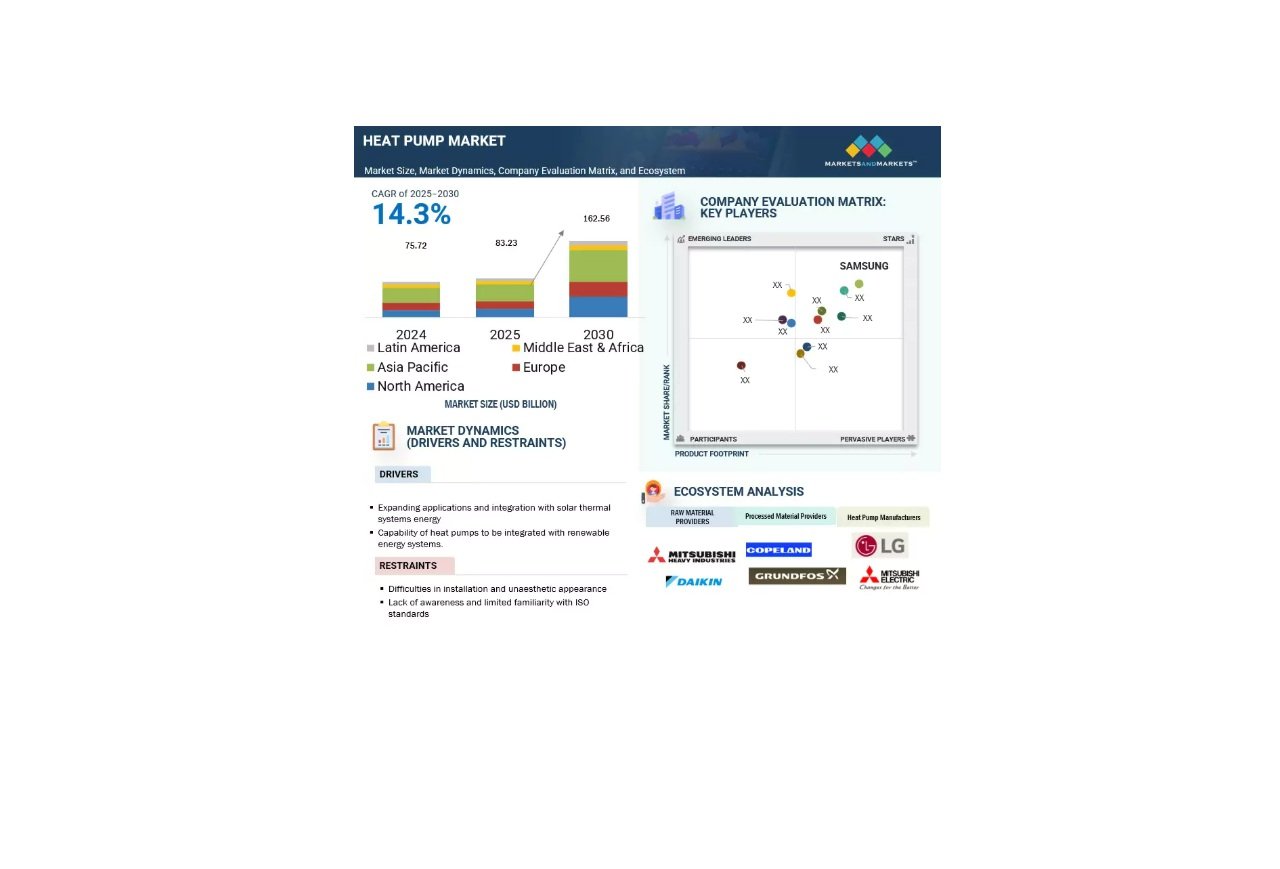The global heat pump market is projected to grow from an estimated USD 83.23 billion in 2025 to USD 162.56 billion by 2030, representing a compound annual growth rate (CAGR) of 14.3%, according to a report by MarketsandMarkets.
Growth is driven by the increasing adoption of heat pumps as reliable solutions for large-scale heating and cooling, alongside government incentives, subsidies, and supportive regulatory frameworks. These factors support the shift toward more energy-efficient and environmentally sustainable systems.
Among the various technologies, the air-to-air segment is expected to dominate the market during the forecast period. Rising energy prices and the growing demand for remote monitoring and control are contributing to the segment’s growth, as consumers seek cost-effective alternatives for climate control.
In terms of refrigerants, the R410A segment is projected to be the largest. This growth is attributed to demand in newly constructed residential and commercial buildings, supported by building codes and the systems' ability to deliver both heating and cooling across diverse climates and building types.
Regionally, Asia Pacific is expected to lead the global market due to an increase in residential construction projects in expanding urban and suburban areas, driving the need for efficient HVAC solutions.
Key players in the heat pump market include Samsung (South Korea), DENSO Corporation (Japan), Midea (China), Panasonic Holdings Corporation (Japan), and Mitsubishi Electric Corporation (Japan). Strategies such as new product launches, acquisitions, partnerships, and investments are among the main approaches adopted by these companies.
Read More
